Nuclear Medical

What are some emerging technologies or materials being developed for improved radiation protection ?
This article discusses various emerging technologies and materials being developed to improve radiation protection, including advanced shielding materials like nanomaterials and metal-organic frameworks (MOFs), smart detection systems for real-time monitoring and machine learning-powered analysis of radiation levels, personal protective equipment (PPE) such as next-generation spacesuits and radiation-resistant clothing, medical countermeasures like radioprotectants and gene therapy, and nuclear waste management solutions like Synroc and glassification. These advancements aim to enhance safety and security in environments where radiation is a concern, across sectors such as nuclear power generation, medical applications, space exploration, and nuclear waste management.

Can you explain the concept of "radiation shielding" and its importance in radiation protection ?
Radiation shielding plays a critical role in radiation protection by using materials to absorb or deflect harmful radiation, thus reducing exposure levels. This concept is essential in industries such as nuclear power generation, medical imaging, and space exploration, where high radiation levels pose risks. Radiation shielding is important for human health protection, safety in nuclear facilities, medical applications, space exploration, and environmental conservation. Various materials are used for radiation shielding, including lead, concrete, water, polyethylene, tungsten, and boron, each effective against specific types of radiation.

What is the future of nuclear energy in the energy market ?
The future of nuclear energy is promising, as it has advantages such as low carbon emissions, high energy density and baseload power. However, challenges like safety concerns, waste disposal, and high costs must be addressed. Increasing demand for clean energy, advances in technology, and integration with renewable sources can drive the growth of nuclear energy in the future.

What role can nuclear power play in providing alternative energy solutions ?
Nuclear power is a low-carbon energy source that can contribute significantly to providing alternative energy solutions. It offers several advantages, such as low carbon emissions, high energy density, diverse fuel sources, waste management capabilities, economic benefits, job creation, and energy security. With its potential to reduce carbon emissions and mitigate climate change, nuclear power can play a crucial role in meeting our energy needs while also contributing to environmental sustainability.

What are the potential benefits and drawbacks of nuclear power in terms of climate change and energy security ?
Potential Benefits of Nuclear Power: - Low carbon emissions during operation, contributing to climate change mitigation. - High energy density of uranium enhances energy security by reducing reliance on imported fuels. - Ability to provide stable baseload power ensures reliability and energy security. Potential Drawbacks of Nuclear Power: - Significant GHG emissions from mining, refining uranium, plant construction, and decommissioning. - Long-lived radioactive waste poses challenges for climate change mitigation and environmental safety. - Risk of meltdowns and nuclear proliferation undermines energy security.
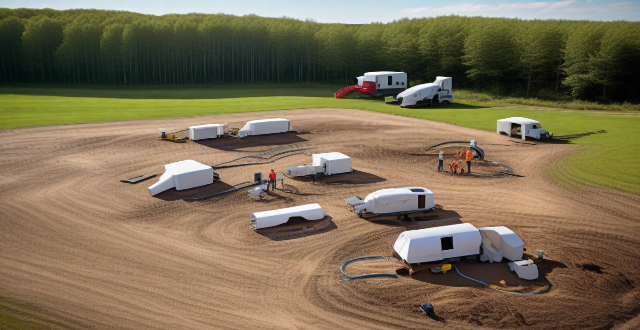
How does the use of nuclear energy impact radiation levels in the environment and what measures are taken to mitigate this ?
This article discusses the impact of nuclear energy on radiation levels in the environment, highlighting the release of radioactive materials through air emissions, liquid discharges, and solid waste disposal. It also outlines mitigation measures taken at different stages of the nuclear fuel cycle, including design and construction, operation and maintenance, waste management, and decommissioning and site restoration. The article emphasizes that significant measures are taken to ensure the safe and reliable use of nuclear energy as a source of power.

How can I treat a burn before seeking medical attention ?
Burns can be painful and potentially dangerous, especiallyBurns can be painful and potentially dangerous, especially cover a large area of the It's important to seek medical attention as soon as possible for any burn that is serious or covers a significant portion of your body. However, there are steps you can take to treat a burn before getting medical help. Here's what you should do: - Cool the Burn: Run cool (not cold) water over the burn for at least 10 minutes. Avoid putting ice directly on the burn. - Remove Heat Source: If the burn is due to contact with a hot object like a stove or iron, carefully remove the heat source without putting yourself at risk. - Remove Constricting Items: If any jewelry or clothing is near the burned area and might constrict as swelling occurs, remove it if possible without causing further injury. - Cover the Burn: After cooling the burn, gently cover it with a clean cloth or sterile dressing to protect it from infection and further injury. - Take Pain Relief: Over-the-counter pain relievers like ibuprofen or acetaminophen can help manage pain. Follow the instructions on the packaging and consult a healthcare professional if unsure. - Stay Hydrated: Drink plenty of fluids to prevent dehydration, which can occur more quickly when your skin is damaged. While the above steps can help with minor burns, it's crucial to seek medical attention for more serious burns. You should see a doctor for burns that are deeper than the top layer of skin (second-degree burns), cover an area larger than your hand, are on the face, hands, feet, groin, buttocks, or major joints, are caused by electricity, radiation, or chemicals, or show signs of infection such as increased redness, pain, or fever. Remember, these guidelines are for initial first aid and should never replace professional medical advice. Always seek medical attention for serious burns as soon as possible.
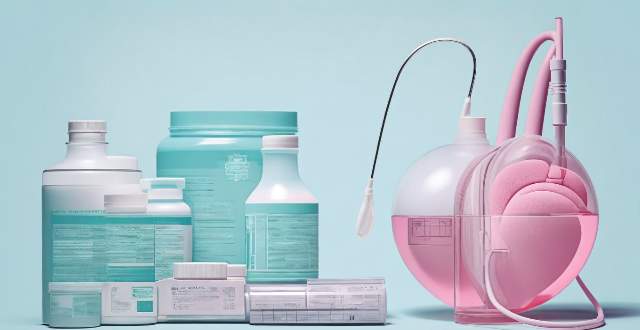
How can I customize my emergency kit for specific medical needs ?
Customizing an emergency kit for specific medical needs is crucial for individuals with health conditions. To tailor your kit, assess your medical needs, list down medications, and identify potential complications. Incorporate specialized equipment like diabetes management tools or heart condition medication. Include general first aid supplies, information cards, and instruction manuals. Don't forget communication tools and personal comfort items to alleviate stress during emergencies. Being prepared can significantly impact managing your health in disaster situations.

Is there a difference between PPE for medical use versus industrial use ?
The text discusses the differences between personal protective equipment (PPE) for medical use and industrial use. It explains that these differences mainly concern the level of protection required, the type of hazards encountered, and the specific features of the equipment designed to address those hazards. Medical professionals often deal with infectious diseases and thus require PPE that can protect them from pathogens like viruses and bacteria. This typically involves higher levels of protection, such as respiratory protection with N95 respirators or equivalent, which filter out airborne particles, and blood-borne pathogen protection with gloves, gowns, and face shields or goggles to prevent contact with blood and bodily fluids. Industrial workers face different types of hazards, including chemical exposure, physical injuries, and environmental factors. Their PPE tends to focus on chemical protection with protective suits, gloves, and boots made from materials resistant to specific chemicals or solvents, and physical protection with hard hats, safety glasses, and high-visibility clothing to prevent injuries from machinery or construction sites. The primary hazard in a medical setting is biological agents, such as viruses, bacteria, and other pathogens that may be present in patients' blood or other bodily fluids. Workers in industrial settings face a variety of hazards, including but not limited to chemical exposure from handling toxic substances, physical dangers from heavy machinery and equipment operation, and environmental risks such as extreme temperatures or noise pollution. PPE for medical use often includes features like fluid resistance with materials that are impermeable to liquids to prevent contamination, antimicrobial treatment with some PPE items having an antimicrobial coating to reduce the growth of microorganisms, and compatibility with other medical equipment designed to be used in conjunction with other medical tools and devices without interference. PPE for industrial use emphasizes features like durability with materials that can withstand harsh conditions and repeated use, comfort and mobility often lighter and more flexible materials to allow for ease of movement over long periods, and specialized functionality such as gloves having enhanced grip or shoes having steel toes for added protection against physical impacts.
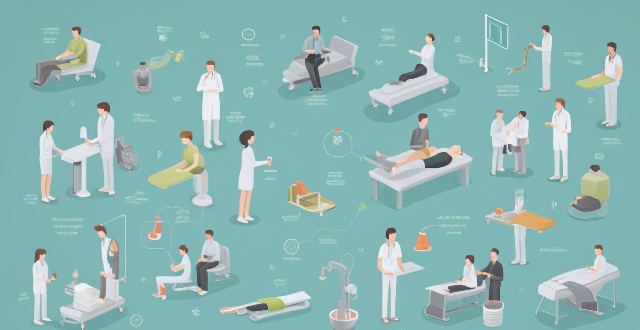
In what ways can virtual reality be utilized for medical training and therapy ?
Virtual reality is revolutionizing medical training and therapy by providing immersive, interactive experiences that simulate real-world scenarios. In medical training, VR offers hands-on practice in a safe environment, multisensory learning experiences, interactive anatomy education, and tools for surgical planning and collaboration. In therapy, it is used for pain management, motor skills rehabilitation, cognitive rehabilitation, mental health treatment, specialized interventions like ASD therapy, and neurorehabilitation. The potential of virtual reality in healthcare is vast, with ongoing technological advancements expected to bring further innovations in this field.

What are the benefits and challenges of using drones for medical supply delivery ?
**Benefits of Using Drones for Medical Supply Delivery:** - **Increased Efficiency:** Drones can cover large distances quickly and bypass obstacles. - **Accessibility to Remote Areas:** Ideal for reaching rural or disaster-affected regions. - **Cost Savings:** Lower manpower and operational costs compared to traditional methods. - **Improved Safety:** Eliminates human errors and operates in hazardous conditions. - **Real-Time Tracking:** Ensures accountability and peace of mind for senders and recipients. **Challenges of Using Drones for Medical Supply Delivery:** - **Regulatory Issues:** Strict regulations and complex permit processes limit drone operations. - **Technical Constraints:** Limited load capacities, battery life, and weather conditions affect reliability. - **Security Concerns:** Risks of interception and tampering with cargoes. - **Public Perception:** Addressing privacy concerns and gaining public acceptance is essential. - **Infrastructure Development:** Significant investment required for support infrastructure.

How can women ensure they have access to medical care and support in case of illness or injury while traveling ?
How Can Women Ensure They Have Access to Medical Care and Support in Case of Illness or Injury While Traveling? Traveling can be an exciting adventure, but it's important to ensure that you have access to medical care and support in case of illness or injury. Here are some tips for women to ensure they have access to medical care while traveling: 1. Research Before You Go: Before embarking on your journey, research the local healthcare system and facilities. Look for hospitals, clinics, and pharmacies in the area you will be visiting. Make a list of emergency numbers and keep them with you at all times. 2. Get Travel Insurance: Consider purchasing travel insurance that includes medical coverage. This will give you peace of mind knowing that you are covered in case of an unexpected illness or injury. 3. Pack a First Aid Kit: Pack a first aid kit with essential items such as bandages, antiseptic wipes, pain relievers, and any prescription medications you may need. It's also a good idea to bring along copies of your prescriptions in case you need to refill them while traveling. 4. Stay Healthy: Take steps to stay healthy while traveling. Wash your hands frequently, eat nutritious meals, drink plenty of water, and get enough sleep. Avoid risky behaviors such as excessive alcohol consumption or participating in dangerous activities without proper safety gear. 5. Seek Help When Needed: If you do become ill or injured while traveling, don't hesitate to seek medical attention. Many countries have English-speaking doctors and nurses who can provide assistance. If you are unable to communicate effectively with local healthcare providers, consider using translation services or seeking out expatriate communities for support. In conclusion, ensuring access to medical care and support while traveling is crucial for women's health and safety. By doing your research beforehand, getting travel insurance, packing a first aid kit, staying healthy, and seeking help when needed, you can enjoy your travels with peace of mind knowing that you are prepared for any potential emergencies.

What are the most effective ways to protect against radiation exposure ?
Radiation exposure can be harmful to our health, and it is essential to take measures to protect ourselves from its effects. Here are some of the most effective ways to protect against radiation exposure, including using shielding materials, maintaining a safe distance, wearing protective clothing, following safety guidelines, getting regular check-ups, eating a healthy diet, and staying informed.

What is the correct procedure for treating someone who has fainted ?
The text provides a detailed procedure for treating someone who has fainted, emphasizing the importance of ensuring safety, checking responsiveness, calling for help, proper positioning, loosening clothing, checking breathing and pulse, moving to recovery position, and seeking medical attention. It stresses that these steps are a general guideline and professional medical assistance should always be prioritized, especially if the person does not regain consciousness quickly or shows signs of severe distress.
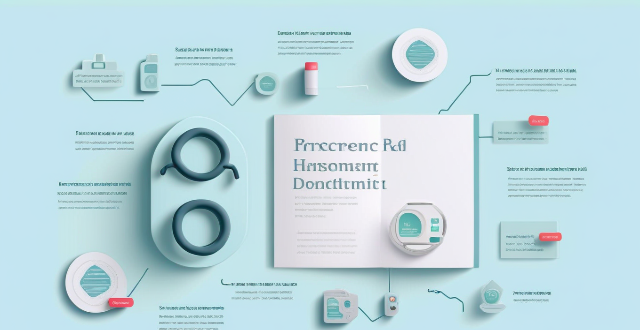
Are pre-existing medical conditions covered by travel insurance ?
Travel insurance coverage for pre-existing medical conditions varies by policy and provider. Factors influencing coverage include the type of policy, deductibles and limits, waiting periods, and disclosure of information. Some policies offer limited or comprehensive coverage for these conditions, while others exclude them altogether. It is crucial to research different policies and consult with an insurance professional to find the best coverage for your individual needs.
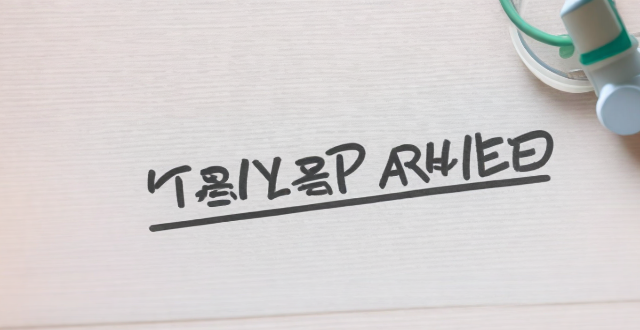
How can I be prepared for medical emergencies while traveling abroad ?
This text provides advice on how to be prepared for medical emergencies while traveling abroad. It suggests researching healthcare options, getting travel insurance, packing a travel medicine kit, learning basic first aid, knowing emergency numbers, staying healthy, and keeping important information handy.

What technological advancements are necessary for the successful establishment of a lunar base ?
Establishing a lunar base requires technological advancements in areas such as life support, energy production, habitat construction, transportation, communication, health monitoring, and extravehicular activity. Innovations like advanced recycling systems, hydroponics for food production, solar power, nuclear energy, 3D printing of habitat components, radiation shielding, rugged vehicles, high-speed internet, automation, telemedicine, improved spacesuits, and specialized tools are essential for creating a sustainable and efficient lunar habitat.

What role do artificial intelligence and machine learning play in medical diagnostics ?
The text discusses the role of AI and ML in medical diagnostics, highlighting their importance in improving diagnosis accuracy, reducing errors, and streamlining workflow. The technologies are transforming healthcare by providing faster, more accurate, and cost-effective solutions. Key roles include image recognition, genetic analysis, automating routine tasks, enhancing decision support, predictive analytics, and optimizing resource allocation.

What challenges need to be overcome to create a sustainable lunar base ?
Building a sustainable lunar base presents significant challenges in logistics, environment, technology, and human factors. These include reliable transportation, remote construction, surviving extreme conditions, power generation, effective communication, habitability concerns, health care, and team dynamics. Addressing these issues will require innovative solutions and international collaboration, ultimately paving the way for deeper space exploration.

How quickly can I get reimbursed by my travel insurance company ?
The time it takes to get reimbursed by your travel insurance company depends on the type of claim you are filing and the policies of your insurance provider. Emergency medical claims can be processed within a few days to a week, while non-medical claims can take longer depending on the nature of the claim and the required documentation. To expedite the process, it's important to read your policy carefully, keep all receipts and documentation, contact your travel insurance company promptly, submit complete and accurate information, and follow up on your claim if necessary. By following these tips, you can help ensure a smoother and faster reimbursement experience.

What impact has electronic health records had on the efficiency of medical practices ?
Electronic health records (EHRs) have revolutionized the healthcare industry by providing a digital platform for storing, managing, and exchanging patient information. This has led to significant improvements in the efficiency of medical practices. In this article, we will discuss the various ways in which EHRs have impacted the efficiency of medical practices. Benefits of Electronic Health Records: - Improved accessibility with faster retrieval and remote access - Enhanced communication through secure messaging and patient portals - Streamlined workflow with automated tasks and reduced paperwork - Improved quality of care with error reduction and clinical decision support - Data analysis and reporting simplified by data mining and regulatory compliance Challenges Faced with Electronic Health Records: - High implementation costs and staff training requirements - Interoperability issues and data exchange challenges - Security concerns related to data breaches and privacy protection In conclusion, electronic health records have had a significant impact on the efficiency of medical practices by improving accessibility, enhancing communication, streamlining workflow, improving quality of care, and simplifying data analysis and reporting. However, challenges such as cost, training, interoperability issues, and security concerns must be addressed to fully realize the potential benefits of EHRs in healthcare settings.
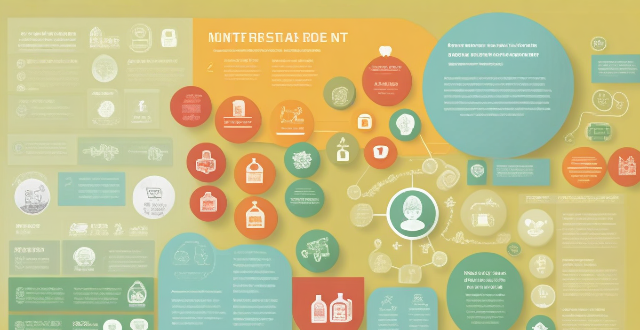
What are the most innovative applications of technology in the healthcare industry ?
The healthcare industry has seen significant advancements due to innovative applications of technology. Telemedicine allows patients remote access to care, reducing travel time and increasing efficiency. Wearable devices track health metrics, promoting healthy habits. AI and machine learning analyze medical data for accurate diagnoses and personalized treatments. Robotic surgery systems enhance precision in minimally invasive procedures. Blockchain technology secures sensitive medical data sharing among providers.

What happens if I get injured while playing sports and don't have insurance ?
Injuries are a common occurrence in sports, and they can range from minor to severe. When you get injured while playing sports, the first thing that comes to mind is seeking medical attention. However, what happens if you don't have insurance? This article will explore the consequences of not having insurance when you get injured while playing sports. If you get injured while playing sports and don't have insurance, you will be responsible for paying all the medical expenses out of pocket. This can include doctor visits, hospital stays, surgery, physical therapy, and medication. Depending on the severity of the injury, these expenses can add up quickly and become a financial burden. Without insurance, you may have limited access to healthcare providers. Some doctors and hospitals may refuse to treat patients without insurance or may require upfront payment for services rendered. This can delay treatment and potentially worsen your condition. If your injury occurs during a team sport or an organized event, there may be legal implications if you don't have insurance. The organizers or other players may hold you liable for any damages or injuries that occur during the game. This can result in lawsuits and legal fees. Not having insurance can also have long-term effects on your health and well-being. If you cannot afford proper medical care or physical therapy, your injury may not heal properly, leading to chronic pain or disability. This can impact your ability to work or participate in activities you enjoy. The best way to avoid these consequences is to get insurance coverage. There are various types of insurance policies available, including health insurance, accident insurance, and sports-specific insurance. Research and compare different policies to find one that meets your needs and budget. Another way to reduce the risk of injury is to participate in low-risk sports or activities. Choose sports that are less likely to cause severe injuries, such as swimming or cycling, instead of contact sports like football or rugby. Wearing protective gear can also help prevent injuries while playing sports. Make sure to wear appropriate gear such as helmets, pads, and mouthguards when participating in high-risk activities. If you do get injured while playing sports, seek medical attention promptly even if you don't have insurance. Some healthcare providers offer payment plans or sliding scale fees based on income, which can help alleviate some of the financial burden associated with receiving medical care. In conclusion, getting injured while playing sports without insurance can have serious consequences, including high medical expenses, limited access to healthcare, legal liability, and long-term effects on your health and well-being. To avoid these consequences, it is important to get insurance coverage, participate in low-risk sports, use protective gear, and seek medical attention promptly if needed.

What are some common types of emergencies and how should they be handled ?
Emergencies can occur at any time and place, often without warning. Knowing the types of emergencies and how to handle them is crucial for ensuring safety and minimizing harm. In this article, we will discuss some common types of emergencies and their appropriate handling methods. ## Natural Disasters Natural disasters are events caused by environmental factors that result in widespread damage and loss of life. Some common types of natural disasters include earthquakes, hurricanes, floods, wildfires, and tornadoes. When faced with a natural disaster, it is essential to stay calm, seek shelter, follow evacuation orders, have an emergency kit ready, and stay informed about the situation. ## Medical Emergencies Medical emergencies refer to situations where immediate medical attention is required to prevent serious harm or death. Some common types of medical emergencies include heart attacks, strokes, severe allergic reactions, severe bleeding, and choking. When dealing with a medical emergency, it is crucial to call for help, perform first aid if trained, use automated external defibrillators (AEDs) if available, do not move the victim unless necessary, and stay with the victim until help arrives. ## Fire Emergencies Fire emergencies involve uncontrolled fires that pose a threat to people and property. Some common types of fire emergencies include house fires, wildfires, car accidents involving fire, and industrial fires. When facing a fire emergency, it is important to activate fire alarms/alert others, evacuate safely through designated exits, call emergency services immediately, do not reenter burning buildings, and use fire extinguishers appropriately if trained and safe to do so. In conclusion, being prepared for emergencies is crucial for ensuring safety and minimizing harm. By understanding common types of emergencies and their appropriate handling methods, individuals can respond effectively in crisis situations. Remember to stay calm, act quickly, and follow proper procedures to protect yourself and others.

How long should a couple try to conceive before seeking medical help ?
This article provides guidance on how long couples should try to conceive naturally before seeking medical assistance. The recommended time frame varies based on the woman's age and other health factors. Women under 35 are advised to consult a doctor if they haven't conceived after a year of trying, while those over 35 should seek help after six months due to declining fertility with age. The text also emphasizes the importance of maintaining a healthy lifestyle and suggests that both partners get evaluated for potential fertility issues. It further touches upon additional considerations such as pre-existing conditions and the option of exploring alternative approaches alongside conventional treatments.

What are some essential travel safety tips for international tourists ?
Traveling to a foreign country can be an exciting adventure, but it's important to prioritize safety during your journey. Here are some essential travel safety tips for international tourists: ## Research Your Destination Before embarking on your trip, research the destination thoroughly. Familiarize yourself with local customs, laws, and cultural norms. This will help you avoid any misunderstandings or unintentional offenses that could put you in harm's way. ### Learn Basic Phrases in the Local Language Knowing how to say simple phrases like "hello," "goodbye," "thank you," and "I don't understand" in the local language can go a long way in helping you communicate with locals and navigate your way around. ### Check the Weather Forecast Be prepared for any weather conditions by checking the forecast before you leave. Pack appropriate clothing and gear to ensure your comfort and safety throughout your trip. ## Stay Informed About Safety Concerns Stay up-to-date on any safety concerns or travel warnings related to your destination. The U.S. Department of State maintains a website with current information on safety issues and advisories for travelers. ### Register With Your Embassy or Consulate Register your travel plans with your embassy or consulate so they can contact you in case of an emergency or natural disaster. This is especially important if you plan to visit remote areas where communication might be limited. ## Be Cautious With Your Belongings When traveling abroad, it's crucial to take precautions to protect your belongings from theft or loss. Here are some tips to keep your valuables safe: ### Keep Your Valuables Close at Hand Carry only what you need when sightseeing or exploring new places. Keep your passport, cash, credit cards, and other valuables secure in a money belt or hidden pocket. ### Use Hotel Safes Wisely Hotel safes are convenient for storing valuable items while you're out and about. However, be aware that not all hotel safes are foolproof. Some may have vulnerabilities that could allow thieves to access your belongings. Always exercise caution when using hotel safes and consider bringing along a portable lock for added security. ### Be Mindful of Your Surroundings Stay alert and aware of your surroundings at all times. Avoid displaying expensive jewelry or electronics in public places, as these items can attract unwanted attention from pickpockets and thieves. If possible, try to blend in with the local crowd by dressing conservatively and avoiding flashy accessories. ## Follow Local Laws and Customs Respecting local laws and customs is essential for staying safe while traveling abroad. Here are some tips to help you navigate this aspect of international travel: ### Obey Local Laws Familiarize yourself with the legal system and laws of the country you're visiting. This includes understanding the penalties for breaking the law, which can vary widely depending on the country. Remember that what might be legal in your home country could be illegal elsewhere. ### Respect Local Customs Be mindful of local customs and traditions when interacting with locals. Dress appropriately for religious sites and respect their rules regarding photography and behavior. Additionally, be aware of social norms regarding physical contact (such as handshakes or hugs) and follow them accordingly. ## Seek Medical Attention When Needed If you become ill or injured during your trip, seek medical attention promptly. Here are some tips to help you stay healthy while traveling: ### Pack a First Aid Kit Bring a basic first aid kit with essential items such as bandages, antiseptic wipes, pain relievers, and any prescription medications you might need. This will help you handle minor injuries and illnesses without having to search for medical supplies in an unfamiliar place. ### Know Where to Go for Medical Help Research nearby hospitals and clinics before you leave home so you know where to go if you need medical assistance during your trip. It's also a good idea to purchase travel insurance that includes coverage for medical emergencies.